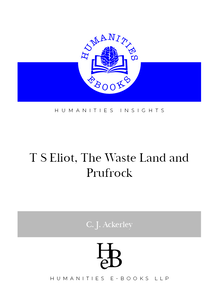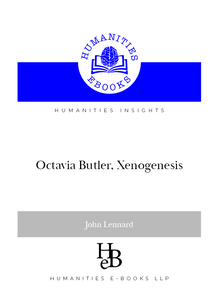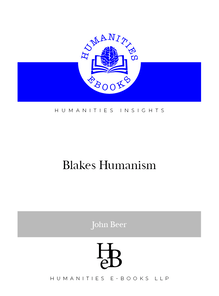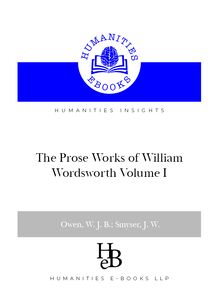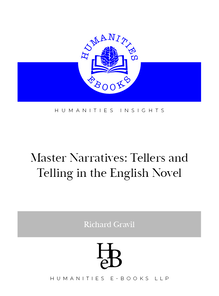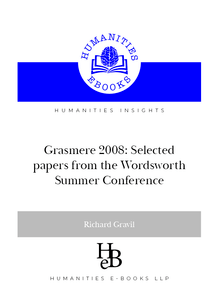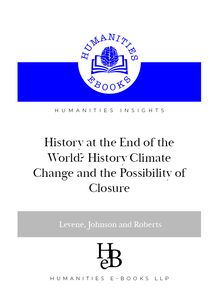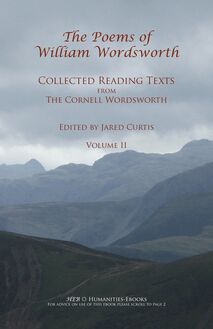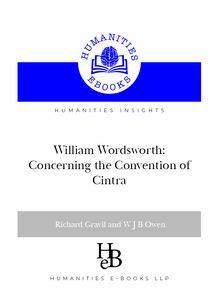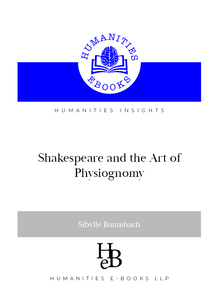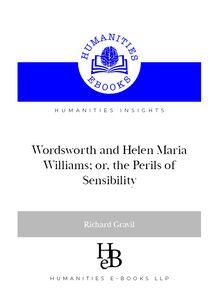-
 Univers
Univers
-
 Ebooks
Ebooks
-
 Livres audio
Livres audio
-
 Presse
Presse
-
 Podcasts
Podcasts
-
 BD
BD
-
 Documents
Documents
-
- Cours
- Révisions
- Ressources pédagogiques
- Sciences de l’éducation
- Manuels scolaires
- Langues
- Travaux de classe
- Annales de BEP
- Etudes supérieures
- Maternelle et primaire
- Fiches de lecture
- Orientation scolaire
- Méthodologie
- Corrigés de devoir
- Annales d’examens et concours
- Annales du bac
- Annales du brevet
- Rapports de stage
La lecture à portée de main
119 pages
English
Découvre YouScribe en t'inscrivant gratuitement
Je m'inscrisDécouvre YouScribe en t'inscrivant gratuitement
Je m'inscris
Obtenez un accès à la bibliothèque pour le consulter en ligne
En savoir plus
En savoir plus
119 pages
English
Obtenez un accès à la bibliothèque pour le consulter en ligne
En savoir plus
En savoir plus

Description
The book offers a detailed commentary on the poetry of Philip Larkin, exploring the political and cultural contexts which have shaped his contemporary reputation.
Sujets
Informations
| Publié par | Humanities eBooks |
| Date de parution | 11 janvier 2021 |
| Nombre de lectures | 0 |
| EAN13 | 9781847601001 |
| Langue | English |
| Poids de l'ouvrage | 1 Mo |
Informations légales : prix de location à la page 0,0250€. Cette information est donnée uniquement à titre indicatif conformément à la législation en vigueur.
Extrait
Literature Insights General Editor: Charles Moseley
Philip Larkin Selected Poems
by John Gilroy
HEB☼FOR ADVICE ON THE USE OF THIS EBOOK PLEASE SCROLL TO PAGE 2
Readingt
*This book is designed to be read in single page view, using the ‘ît page’ command. *To navigate through the contents use the hyperlinked ‘Book-marks’ at the left of the screen. *To search, click the magnifying glass symbol and select ‘show all results’. *For ease of reading, use <CTRL+L> to enlarge the page to full screen, and return to normal view using < Esc >. *Hyperlinks (if any) appear in Blue Underlined Text.
Permissions
Your purchase of this ebook licenses you to read this work on-screen. No part of this publication may be otherwise reproduced or transmitted or distributed without the prior written permission of both the copyright owner and the publisher. You may print one copy of the book for your own use but copy and paste functions are disabled. Making or distributing copies of this book would constitute copyright infringement and would be liable to prosecution. Thank you for respecting the rights of the author.
ISBN 9781847601001
Literature Insights General Editor: Charles Moseley
Philip Larkin:Selected Poems
John Gilroy
HEB☼Humanities-Ebooks, LLP
Copyright
© John Gilroy, 2009
The Author has asserted his right to be identiîed as the author of this Work in accordance with the Copyright, Designs and Patents Act 1988.
First published byHumanities-Ebooks, LLP, Tirril Hall, Tirril, Penrith CA10 2JE
Contents
A Note on the Author
Acknowledgements & Abbreviations
Part 1: Life and Times 1.1 Early Life and Schooldays 1.2 Oxford and after 1.3 Early career 1.4 Hull and fame Part 2: Artistic strategies 2.1 The Profession of poetry 2.2 Dramatic elements 2.3 Forms and techniques 2.4 Romantic connections Part 3: Reading Selected Poems 3.1 From:The Less Deceived(1955) 3.2 From:The Whitsun Weddings(1964) 3.3 From:High Windows(1974) 3.4 Valediction:(Times Literary Supplement, 23 December 1977) Part 4: Reception
Part 5 Bibliography Larkin Texts and Biography: Selected Criticism Bibliography: Recordings Website Hyperlinked materials William Blake: ‘London’ William Shakespeare: ‘Sonnet 116’ From: John Keats: Ode on Grecian Urn, Lines 31–50
A Note on the Author
John Gilroy took his BA at the University of Newcastle and his MPhil at the University of Warwick and currently teaches in the English Department at Anglia Ruskin University in Cambridge. He has contributed to various literary publications, is co-author ofA Commentary on Wordsworth’s ‘Prelude’ Books 1-5(London: Routledge, 1983) and has publishedGerard Manley Hopkins: Se-lected Poems(2007) for the Humanities Ebooks ‘Insights’ series. He has lectured widely at home and abroad for organisations such as ‘Inscape’, The Netherlands-England Society and The English-Speak-ing Union, and is a course director for the University of Cambridge Institute of Continuing Education’s residential and international programmes.
Acknowledgements & Abbreviations
The images of Larkin from Hull University Archives are reproduced by kind permission of the University of Hull, who own the copy-right.
The author would like to thank Dr C. W. R. D. Moseley for his edito-rial suggestions and Emily Gilroy-Martin for help and advice.
Abbreviations
CP: Thwaite, Anthony, ed.,Philip Larkin: Collected Poems(London: Faber, 1988).EPJ: Tolley, A. T. ed.,Philip Larkin: Early Poems and Juvenilia(London: Faber, 2005). EPJ:Tolley, A.T. ed.,Philip Larkin: Early Poems and Juvenilia needs to go betwee FR: Thwaite, Anthony, ed.,Philip Larkin: Further Requirements(London: Faber, 2001). SL: Thwaite, Anthony, ed.,Selected Letters of Philip Larkin:1940– 1985(London: Faber, 1992). Motion: Motion, Andrew,Philip Larkin: A Writer’s Life (London: Faber, 1993). RWLarkin:: Philip Required Writing: Miscellaneous Pieces 1955– 1982(London: Faber, 1983).
Part 1: Life and Times
1.1 Early Life and Schooldays
It is March 1946 and the twenty-four year old Larkin writes a letter to his long-term friend, Jim Sutton, full of his sense of the joy of life. A awless, early Spring day has put him into the best of moods—like listening to Earl Hines, he says, ‘after a YMCA piano-basher’ (SL 114). He goes on to say how privileged he feels to be able to walk about on such a day and how it ‘makes nonsense temporarily of all one’s hopes and fears’. With a possible allusion to Pope’s, ‘life can little more supply / Than just to look 1 about us, and to die,’Larkin Larkin in August 1960 advises Sutton, © The University of Hull ‘All that matters is that we’ve got only îfty years, at the out-side, to look around. So let us be as eager and meticulous as a Boston Vice Squad on a mixed bathing-beach, and if we should produce art, so much the better, but the only quality that makes art durable and famous is the quality of generating delight in the state of living’ (SL115). This early letter is very characteristic of Larkin. First of all, there is his obvious love of life, a simple, physical responsiveness to the
Essay on Man: Epistle , ll.3–4.
Philip Larkin,Selected Poems
9
world in which he înds himself. There is the hint of his already well-established enthusiasm for jazz music, as well as his use of slightly sardonic humour in the well-chosen vice-squad analogy. But over-ridingly we discover the purposive seriousness that makes him ambi-tious not only to be a writer who is accessible and enjoyable but also one whose work will be ‘durable and famous’. It is interesting, how-ever, that the lovely Spring weather makes a nonsense only ‘tempo-rarily’ of his hopes and fears. All Larkin’s enjoyments must compete with his all-pervading sense of the brevity of existence. Even at the age of twenty-one he was writing in his îrst novel,Jill, ‘see how little anything matters. All that anyone has is the life that keeps him going, and see how easily that can be patted out. See how appallingly little life is’. Life is brief at the longest and Larkin is never able to rid 1 himself of a morbid disquiet that ‘Whether or not we use it, it goes’.In some ways it is true to say that for Larkin, as for a poet like John Donne, for example, the whole of his life was a preparation for his taking leave of it. In fact Steve Clark sees his ‘unsparing meditation on ageing, death, “endless extinction,”’ as aspiring to what he calls ‘a kind of agnostic sainthood’.Philip Larkin was born in Coventry in 1922. His father, Sydney, who became Treasurer for Coventry City Council was a not unkind but distinctly authoritarian îgure in a household which included Larkin’s self-effacing mother, Eva, and his elder sister, Catherine (known as ‘Kitty’). Sydney had a powerful inuence on Larkin. Throughout the thirties he was a sympathiser with the resurgent Germany under the National Socialists, and took his teenage son there on two sepa-rate visits in 1936 and 1937. Apart from a few days in Paris in 1952 and a brief trip to Hamburg to receive a prize in 1976, Larkin would never again venture further ‘abroad’ than Ireland and the Channel Isles. Within the sober atmosphere Sydney Larkin created around his family he ensured that Philip was given a good grounding in the literature he himself particularly admired. This included the solidly respectable works of nineteenth and twentieth-century writers—such
‘Dockery and Son’, l.46. Clark, Steve, ‘“Get out as early as you can”: Larkin’s Sexual Politics’ in Hartley, George,Philip Larkin 1922-1985: A Tribute(London: The Marvell Press, 988) p.38.
10
Philip Larkin,Selected Poems
people as Hardy, Arnold Bennett, Christina Rossetti, Housman, but also the Modernist novelists Joyce and Lawrence, the poets T. S. Eliot and Ezra Pound, as well as the new left-wing writers of the thir-ties such as Isherwood, Spender, Auden. Larkin’s work would go on to reect a whole range of such inuences and it is clear that Sydney Larkin was a crucial îgure, not only in the formation of his son’s lit-erary tastes but also in the encouragement he gave to him in his other 1 interests such as jazz music. Larkin’s schooldays were conventionally happy ones. At junior school he made friends with James (Jim) Sutton with whom, during the most formative period of his life, he would carry on a correspond-ence for twenty or so years. Later, as a senior pupil at King Henry VIII School, Coventry, he added two more lifelong friends, Colin Gunner and Noel (Josh) Hughes. The different temperaments of these schoolfellows appealed to various aspects of his own make up. With Sutton he shared the profounder, cultural, interests of literature, music and art, while Hughes and Gunner reected his more outgo-ing self. It is fair to say that Larkin’s popular reputation has never been remarkable for anything more than unalleviated gloom and pes- simism. In fact, this is a major misrepresentation. From his school and university days and throughout his professional career to the end of his life, friends, colleagues, correspondents and acquaintances tes-tify to his highly developed sense of humour, which suggests a pen-etrating intelligence and an ability to recognise, as well as the larger tragedies of existence, the comedy in daily routines. It is not surpris-ing that one of the things for which he gives a ‘Hurray’ is ‘hearing Al Read’ while on holiday in the Western Isles of Scotland in 1971.Al Read was a popular radio comedian who based his humour on his own observations of the quirks and foibles of common life. In inter-view Larkin expresses his own general love of the commonplace and how he doesn’t want to transcend it. ‘I lead a very commonplace life,’
Sydney subscribed his son to a jazz magazine,Down Beat, and bought him a drum kit. An image Larkin was happy to play up to: ‘Gloomy old sod, aren’t I[...]’ concludes a letter to Judy Egerton,SL503, and ironically of himself to John Wain, ‘What I like about Phil, he always cheers you up’ (SL70). 3 Quoted in Motion, p. 44.
-
 Univers
Univers
-
 Ebooks
Ebooks
-
 Livres audio
Livres audio
-
 Presse
Presse
-
 Podcasts
Podcasts
-
 BD
BD
-
 Documents
Documents
-
Jeunesse
-
Littérature
-
Ressources professionnelles
-
Santé et bien-être
-
Savoirs
-
Education
-
Loisirs et hobbies
-
Art, musique et cinéma
-
Actualité et débat de société
-
Jeunesse
-
Littérature
-
Ressources professionnelles
-
Santé et bien-être
-
Savoirs
-
Education
-
Loisirs et hobbies
-
Art, musique et cinéma
-
Actualité et débat de société
-
Actualités
-
Lifestyle
-
Presse jeunesse
-
Presse professionnelle
-
Pratique
-
Presse sportive
-
Presse internationale
-
Culture & Médias
-
Action et Aventures
-
Science-fiction et Fantasy
-
Société
-
Jeunesse
-
Littérature
-
Ressources professionnelles
-
Santé et bien-être
-
Savoirs
-
Education
-
Loisirs et hobbies
-
Art, musique et cinéma
-
Actualité et débat de société
- Cours
- Révisions
- Ressources pédagogiques
- Sciences de l’éducation
- Manuels scolaires
- Langues
- Travaux de classe
- Annales de BEP
- Etudes supérieures
- Maternelle et primaire
- Fiches de lecture
- Orientation scolaire
- Méthodologie
- Corrigés de devoir
- Annales d’examens et concours
- Annales du bac
- Annales du brevet
- Rapports de stage
Signaler un problème
YouScribe
Le catalogue
Le service
© 2010-2024 YouScribe
